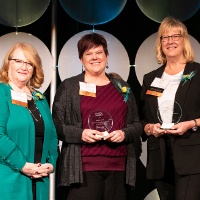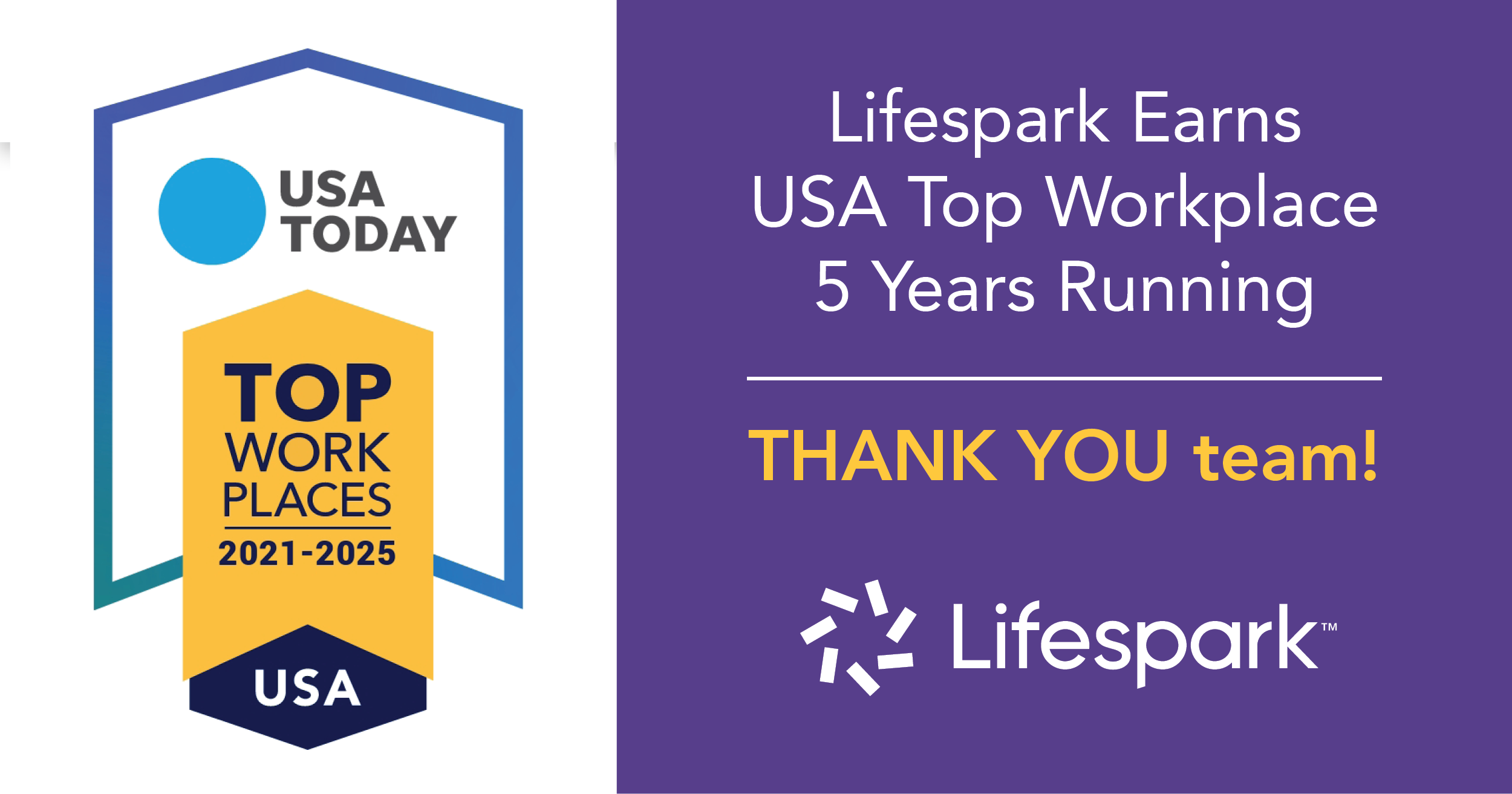
Creating Better Life Experiences With Whole Person Care Transition Initiatives
What if we could improve the care transition experience? How do we do that? This is a wide spread issue among providers who want to do more for their clients at the time of discharge and achieve quadruple aim – better care, better health, reduced cost, and improved engagement. The problem: current transition programs view the solution through a ‘facility’ or ‘provider’ lens and to be successful you have to broaden the lens with a whole person perspective.
It’s why Walker Methodist partnered with Lifespark over a year ago to deliver a whole person care transition program called ‘Life Care by Walker.’ Results from this care transition program have earned them LeadingAge Minnesota’s 2019 Star Among Us Quality Award at the Institute for their ability to change the care transition experience. “Partnerships will be critical to meet the evolving needs of our rapidly-growing senior population, who have a strong preference to age in place and receive high quality care, services and support to help them age well,” said Gayle Kvenvold, President and CEO, LeadingAge Minnesota. “Navigating the complex health care arena can often be a barrier to high client satisfaction, particularly when older adults return home from a transitional care stay. Programs like Life Care at Walker put the client at the center and seamlessly provide the wrap-around services and support to ensure they have a positive experience, quality outcomes and achieve their goal to remain at home.”
Since the partnership began, the Life Care by Walker Methodist transitions program has demonstrated impressive results including an average overall rehospitalization rate of 5.1%, (versus the national average of nearly 15.8%) and 1.8% for ER visits, and primary care physician follow is 94.5%.
But what’s more promising is the ability for this care transition program to address social determinants of health to keep people not only home but living what Lifespark calls, ‘a sparked life.’ It isn’t enough anymore to rely on the medical, reactive care to keep people out of the hospital. “People don’t want care, they want independence,” explained Joel Theisen, CEO of Lifespark. “But we also know care, especially in a transition, is critical to ensuring independence. We have to shift the mindset from looking at ‘care’ as fixing the wound, recuperating after surgery, managing the chronic illness to helping the person regain their sense of independence and meet their personal goals while addressing everything else – that’s life ‘care.’ We can create measurable outcomes when we engage people in transforming their own health.”
Lyn Lais, RN, Lifespark Life Care Nurse with the Life Care by Walker transition program said that’s exactly why this transition program is so different. “It’s not enough to just address the Coleman model, you have to go further to address social determinants of health. It’s what we do at Lifespark really well by looking at the whole person, addressing the full scope of their community needs, visiting them in their homes, and helping them manage their own health.”
Preventing hospitalizations and ER visits is a major cost saver, we know

(L to R): Walker Methodist team: Beth Deneau, RN, Chief Clinical Officer and Mary Sheets, RN; Lifespark team: Lyn Lais, RN, Life Care Nurse and Matt Kinne, VP, Population Health
that, but the biggest cost savings come from the larger view, that bigger lens, when we look at all the ways we can help a person after their transition to live better – prevent future falls, manage chronic illness, address polypharmacy, connect them to community resources, combat social isolation, and spark them. It’s about addressing what gets in the way of people living healthier, more independent lives once they transition home.
That’s where many traditional care transition programs fail to deliver on the client experience because each experience can be vastly different, a one-size-fits-all solution doesn’t work long-term to improve client outcomes. According to a recent study in the Annals of Family Medicine, ‘Care Transitions From Patient and Caregiver Perspectives,’ “despite concerted actions to streamline care transitions, the journey from hospital to home remains hazardous for patients and caregivers.” When we discharge clients home without the long-term resources to be successful and the oversight of a professional advocate, they become vulnerable to hitting the 911 easy button. Or worse, which is what almost happened to Doris.
Doris is a powerful outcome story that Lyn and Beth shared at the Institute. Her story demonstrates the real results of why the Life Care by Walker transition program is so successful. Lyn’s ability to coordinate multiple layers of support for Doris once she was home using a broader scope to manage her health created a better care transition experience for her and a seamless return to Walker Methodist Health Center for additional support without an ER or hospital visit.
“The purpose of the Life Care by Walker Methodist program is to design, develop, and deliver a comprehensive continuum of care model,” said Beth Deneau, RN, Chief Clinical Officer for Walker Methodist. “Our aligned vision for patient-driven, life-long, whole person care for every person creates the ability for us to achieve quadruple aim.”
For Doris and many seniors served through the Life Care by Walker transition program, they are confident their health and wealth is valued by a health system that has quadruple aim in mind for their personal long-term wellbeing.
Joel added, “We have to stop building models around reactive issues and deliver on what people need to live healthier lives. That’s the key to creating better care transition experiences. The model needs to go further and create better life experiences.”



